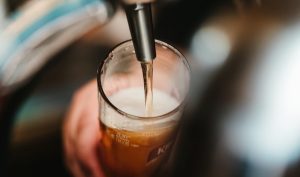Sustainability
The Beer Institute (BI) is committed to a more sustainable future. The BI is collaborating with its members to promote sustainability and reduce environmental impact. The Beer Institute helps brewers identify their sustainability efforts in areas like water conservation, sustainable agriculture, reducing packaging and material waste and energy efficiency and renewable energy. Additionally, we advocate for sustainable practices within the beer industry by facilitating discussions, sharing best practices and supporting programs that encourage environmental stewardship.

Water Conservation
The Beer Institute has identified water stewardship and conservation as areas where BI members excel in sustainability. Agriculture is responsible for 70 percent of water withdrawal globally. Our members have taken several measures to conserve water, including identifying water-stressed areas, managing water use and reuse, establishing reduction targets, working with at-risk waterways and communities, outreach to supply chains and reporting and framework alignment.

Sustainable Agriculture
The brewing process uses several agricultural products, most notably barley, wheat, rice, corn and hops. This agricultural process significantly impacts the U.S. economy; barley alone has a U.S. crop value of more than a billion dollars annually, and the brewing industry’s economic impact results in a $471 billion annual impact with 2.42 million jobs and $58 billion in tax revenue. The Beer Institute and its members support programs that will help maintain barley as a competitive crop by creating programs that support barley strains for better yields and drought resistance.

Packaging and Material Waste
Both supplier and brewer member companies at the Beer Institute engage in recycling and packaging, whether through steel kegs, aluminum cans, or glass bottles. Our members have engaged in zero waste initiatives and continue to find new opportunities to reduce with packaging and material waste.

Energy Efficiency and Renewable Energy
Beer Institute members require significant energy to produce their products. Fluctuations in these energy costs can increase a company’s exposure to risk. The Beer Institute’s members are actively finding ways to reduce carbon emissions and report these efforts. To create a lower carbon footprint, BI members have engaged in conserving energy and finding sources of energy that have a lower impact on the environment. BI’s membership actively works toward reduction targets and will continue to be a steward in climate change reporting.













